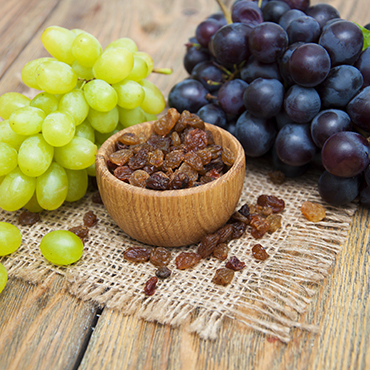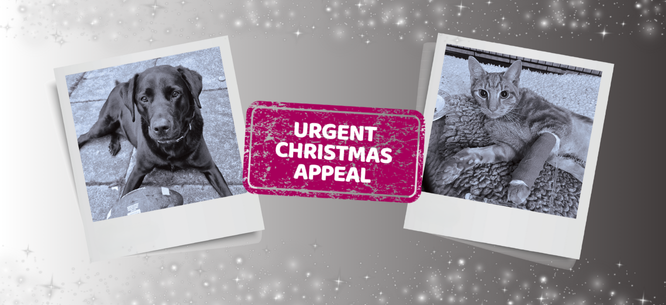Grape, raisin, currant and sultana poisoning in dogs
Overview
- Grapes, raisins, sultanas and currants are all potentially poisonous to dogs.
- If eaten they can cause gut problems and in serious cases, kidney failure.
- The toxic dose varies from dog to dog, but in some cases, can be very small (i.e. some dogs don’t have to eat much of the fruit to become poorly).
- Treatment should be given quickly because left untreated, grape/raisin/currant/sultana poisoning can cause death.
General information
Grapes, raisins, currants and sultanas are all part of a family of fruit called ‘Vitis vinifera’ that can cause gut and kidney problems in dogs. We don’t currently know how these fruits cause poisoning, but we do know that dogs can become extremely poorly (and sometimes even die) after eating very small amounts of them (especially the dried fruits). Interestingly, symptoms of poisoning can vary a lot from one dog to the next. Some appear to be mostly unaffected by the fruits, whereas others develop severe symptoms just a few hours after eating them. Unfortunately, it’s impossible to know whether a dog will be severely affected or not, even if they have eaten the fruit before without issues. Poisonings tend to be most common around festive times, when the fruits are readily available in foods such as Christmas cake, hot cross buns, cookies and chocolate.

Symptoms
Symptoms of grape/raisin/currant/sultana poisoning tend to include:
- Vomiting
- Diarrhoea
- Painful abdomen (tummy)
- Blood in poo
- Low energy
- Reduced appetite
If your dog is severely poisoned by the fruits, they may develop kidney failure over the following 1-3 days. As part of their treatment, your vet will monitor your dog for signs of a kidney problem, and if necessary, run blood and urine tests to check their kidney markers.
Treatment
Emptying the stomach
Your vet may give your dog an injection to make them vomit. The aim of this is to bring any undigested fruit back up and prevent further toxins being absorbed. This is only usually worthwhile if your vet is able to give the injection quickly after the fruits are eaten (before they’ve been digested).
Activated charcoal
Activated charcoal is a black powder that traps toxins. It’s usually mixed with water and given as a paste in food.
A fluid drip
Your vet may need to put your dog on a fluid drip to support their kidneys and help them flush out any fruit toxins in their bloodstream.
Medication
Your vet may need to give your dog other medications depending on their symptoms, and how poorly they are.
Blood tests
Your vet will run blood tests to check whether the fruit has affected your dog’s kidneys. It may be necessary to run the same tests a few times because kidney problems can take a few days to develop.
Cost
Emergency veterinary care can be very expensive so it’s important to speak openly to your vet about your finances, the cost of treatment, as well as what you think is right for your dog.
Consider taking out dog insurance as soon as you bring your dog home, before any signs of illness start. This will give you peace of mind that you have some financial support if they ever become unwell.
Published: November 2020
Did you find this page useful?
Tell us more
Please note, our vets and nurses are unable to respond to questions via this form. If you are concerned about your pet’s health, please contact your vet directly.
Thank you for your feedback
Want to hear more about PDSA and get pet care tips from our vet experts?
Sign up to our e-newsletter
Written by vets and vet nurses. This advice is for UK pets only. Illustrations by Samantha Elmhurst.

